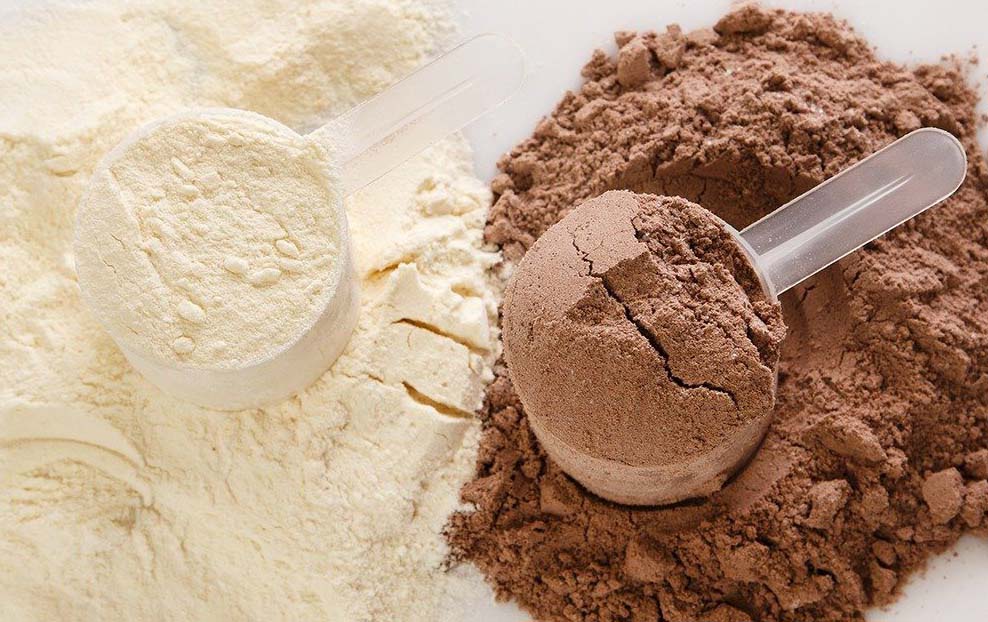Nikhil Prasad Fact checked by:Thailand Medical News Team Oct 15, 2025 4 months, 2 weeks, 3 days, 21 hours, 49 minutes ago
Thailand Health News: Protein Supplements Under Scrutiny
A shocking new investigation by U.S. Consumer Reports (CR) has revealed that many of the most popular protein powders and shakes in the United States contain alarmingly high levels of toxic lead. Protein products have become part of everyday diets for millions of Americans, as people increasingly turn to protein-enriched foods, smoothies, and meal replacements. But the findings suggest that what many consider a healthy choice could, in fact, be putting their health at risk. In the midway of this paragraph, this
Thailand Health News report highlights how this growing obsession with protein may come at a cost that most consumers are unaware of.
 Popular Protein Powders Found Contaminated with Lead!
Testing Uncovers Alarming Levels of Lead
Popular Protein Powders Found Contaminated with Lead!
Testing Uncovers Alarming Levels of Lead
Consumer Reports examined 23 of the most widely sold protein products and discovered that more than two-thirds of them contained more lead in a single serving than CR’s food safety experts consider safe to consume in an entire day—some by over ten times. Even more concerning, the lead contamination has worsened compared to a similar test done 15 years ago, showing that heavy metal levels have not decreased despite the market’s massive growth.
Plant-Based Protein Powders Were the Worst
According to the report, plant-based protein powders were the biggest offenders. Nearly all the plant-based products tested showed elevated lead levels, and two—Naked Nutrition Vegan Mass Gainer and Huel Black Edition—contained so much lead that CR experts warned consumers to avoid them entirely. Naked Nutrition’s powder contained 7.7 micrograms of lead per serving, while Huel’s had 6.3 micrograms. Experts explained that pea-based proteins tend to absorb lead from soil, water, and air, making them more likely to be contaminated.
Lack of Government Oversight Raises Risks
Unlike prescription drugs or over-the-counter medicines, dietary supplements such as protein powders are not strictly regulated by the U.S. Food and Drug Administration (FDA). This lack of oversight means that companies can release products without any mandatory testing for contaminants like lead. There are no legal limits on the amount of lead that can be present in these supplements, and manufacturers are not required to remove products even when contamination is detected.
Experts Say Most People Don’t Need Protein Supplements
Health experts and physicians interviewed by Consumer Reports say most people already get enough protein through their daily diets. The average adult only needs about 0.8 grams of protein per kilogram of body weight per day, and the human body can absorb only about 25 to 30 grams of protein at one time. Excessive protein intake doesn’t lead to extra muscle gain; instead, it may strain the kidneys and liver while increasing exposure to unnecessary toxins when supplements are contaminated.
Safer Alternatives and Consumer Guidance
Experts recommend focusing on natural protein sources such as eggs, dairy, fish, and lean meats. If consumers still wish to use supplements, they should research product safety and look for brands that publish heavy metal testing results. Animal-based protein powders generally had much lower lead levels compared to plant-based ones, making them a safer occasional choice.
Consumer Reports researcher Tunde Akinleye emphasized that the goal is not to alarm the public but to raise awareness. “Because most people don’t actually need protein supplements,” he said, “it makes sense to ask whether these products are worth the added risk.” Harvard Medical School’s Dr. Pieter Cohen echoed this sentiment, noting that supplements often create a false sense of safety when, in fact, they may carry hidden dangers.
The study findings were published in the Consumer Reports.
https://article.images.consumerreports.org/image/upload/v1760108748/prod/content/dam/CRO-Images-2025/Special%20Projects/Consumer-Reports-Protein-Powders-and-Shakes-Contain-High-Levels-of-Lead-Methodology-Test-Results.pdf
For the latest
Thailand Health News, keep on logging to Thailand Medical News.
Read Also:
https://www.thailandmedical.news/articles/health-news
